Snowy Owl With Kill On The Ice At Frenchman’s Bay
One winter Bob and I caught sight of this Snowy Owl with a fresh kill out on the ice at Frenchman’s Bay, on edge of Lake Ontario in Ontario, Canada.
The numbers of Snowy Owls being seen that winter (2014) set records in Ontario as well as further south throughout the northeastern States; one was even observed in Florida.
In one rare report, an observer in northeastern Newfoundland spotted more than 75 from one observation point and also counted 206 on a drive down a single road. That is shocking to us and a spectacle we would love to have seen.
Snowy owls are a winter visitor to many parts of southern Canada. They are driven by a search for food. In the Arctic, these owls depend on lemmings and other rodents, and to a lesser extent, on birds and fish. The lemming population fluctuates violently and cyclically, ranging from a great abundance every 4 years or so, to almost nil. In the barren years, the Snowy Owls wander south to find adequate food, and this one obviously is feasting on a recent catch.
When we first stood on the shore of Frenchman’s Bay, we had no idea if a Snowy was anywhere out there? We stood scanning with the binoculars for a good long time, but it was hard to pick out something like a Snowy Owl when there were considerable numbers of other birds in the area. Lots of birds winter in Frenchman’s Bay because some sections around the periphery remain unfrozen, and it is this abundance of potential prey that no doubt had attracted this owl to this location.
A young Herring Gull has made good use of the open water, too. It is dealing with a freshly-caught fish. John James Audubon once saw a Snowy Owl lying at the edge of an ice hole, where it waited for fish to come near the surface and then caught the fish using its feet. Clever and resourceful!
Our scanning the ice finally paid off, and we spotted a snowy owl with its catch out on the frozen bay. Keeping a respectful distance and using our zoom lens to get close, we walked out a short distance on the ice. Fortunately, we were surrounded by ice fishermen. The Snowy’s watchful eye followed our every move.
Because these owls do a lot of sitting, remaining in one spot for hours while only occasionally swiveling their head, leaning forward or blinking their cat-like yellow eyes, there wasn’t much chance that the Owl would fly away unless it felt that its quarry was at risk of being snatched.
Snowy Owls are well adapted to deal with the cold, they aslo have densely feathered feet right out to the tips of the talons, the colour of their plumage makes detection very difficult, and the warm feathers on the face protect the bill.
It was a bleak, cold day that would have the Owl feeling right at home.
These owls unlike many other owls, are active during the daylight hours owing to their familiarity with continuous daylight hours during their time in the Arctic in the summer.
These owls are not that easy to spot.
Bob and I left the Snowy Owl secure with its prey as the fading rays of the setting sun fell softly on the frozen bay. It would be sometime yet before the ice would melt away, and I’m sure the Owl was content to hang around for a little while longer.
Frame To Frame – Bob and Jean


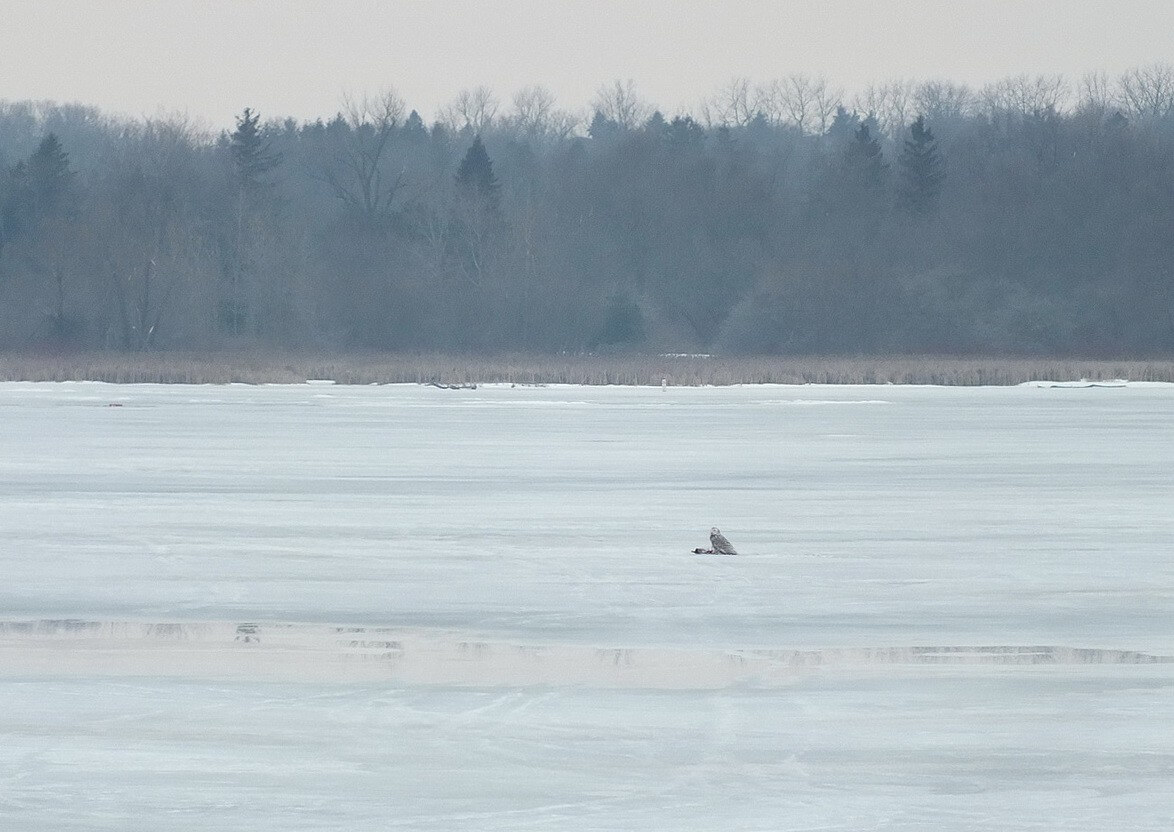
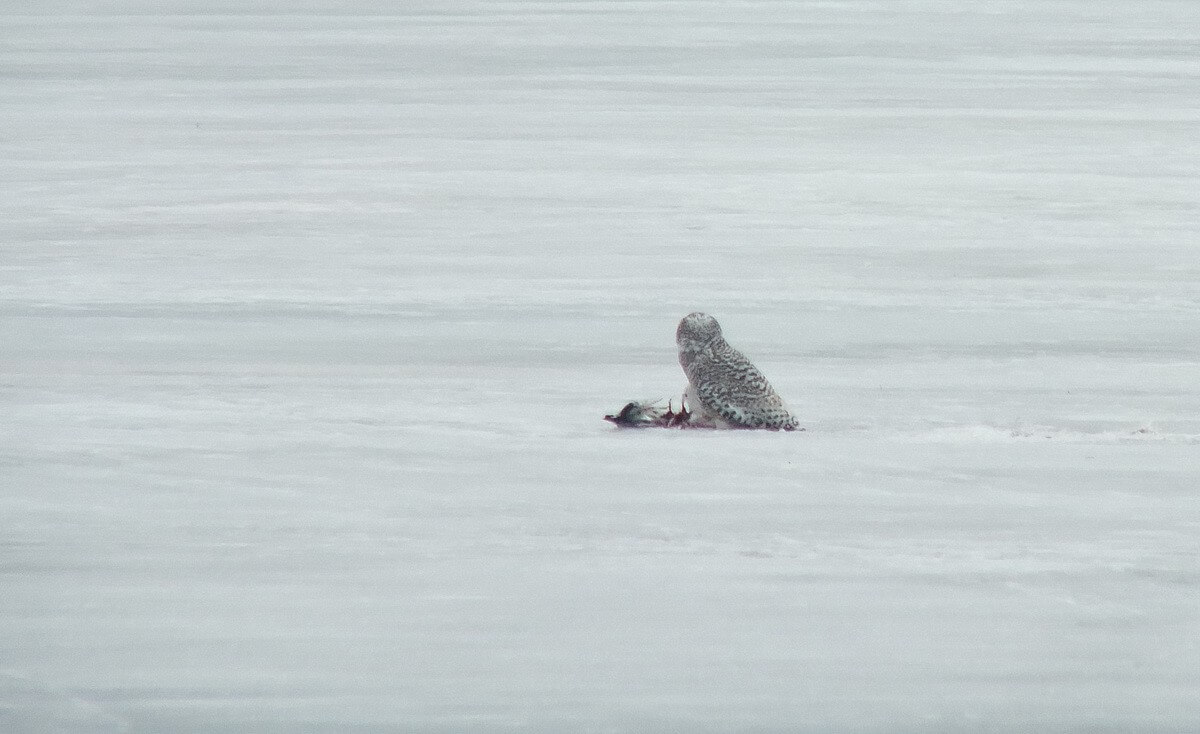
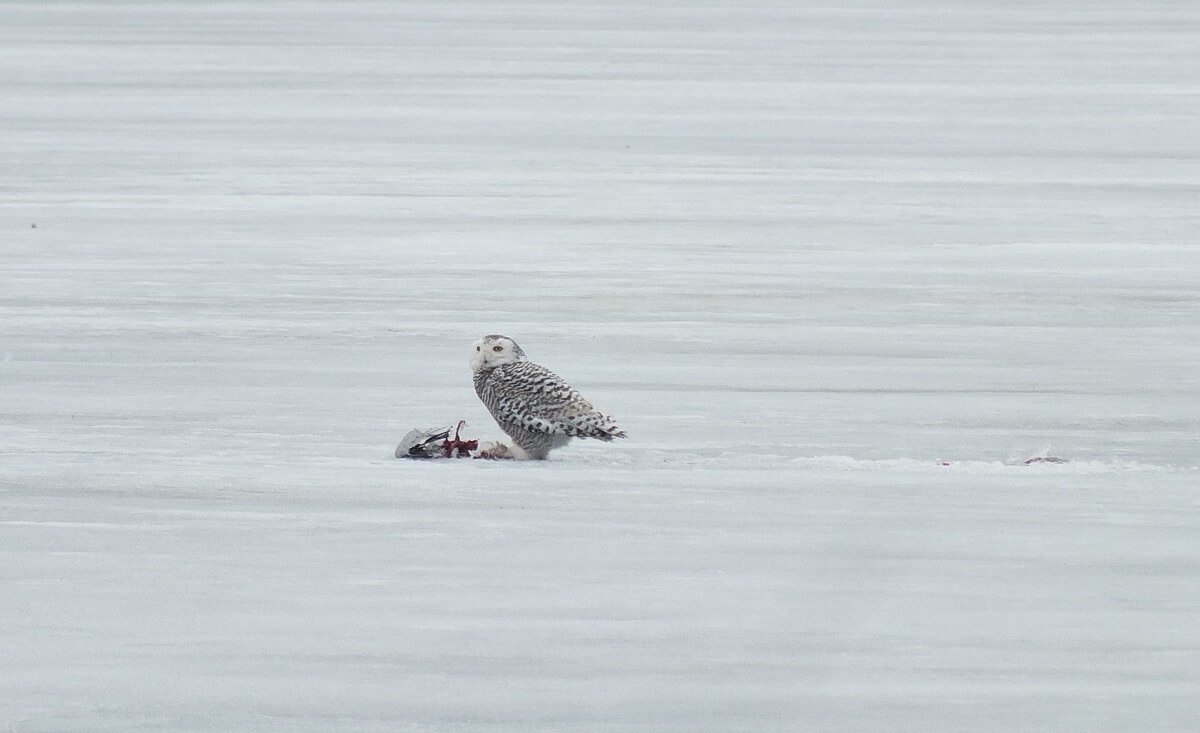
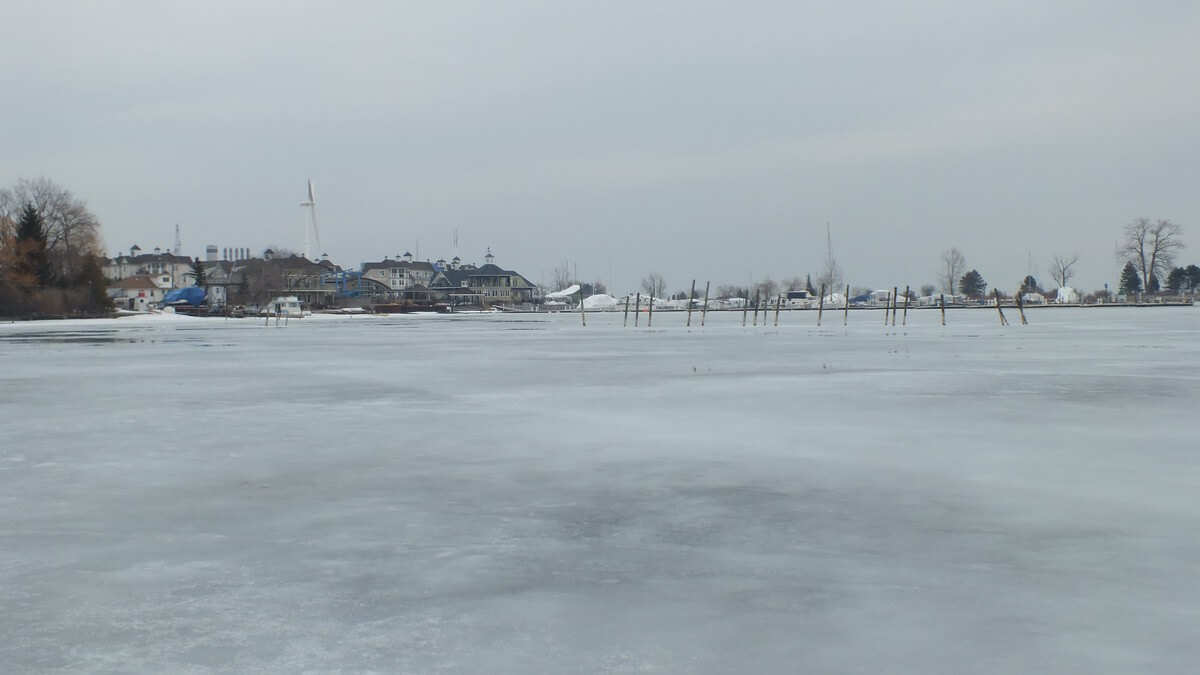
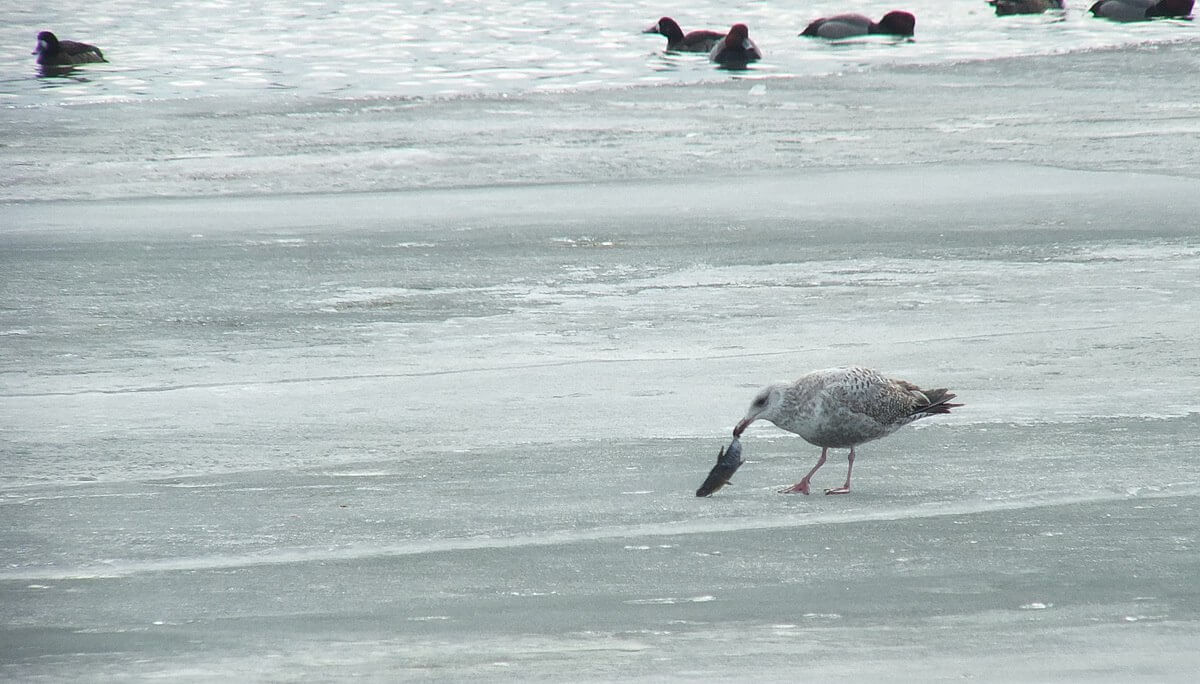
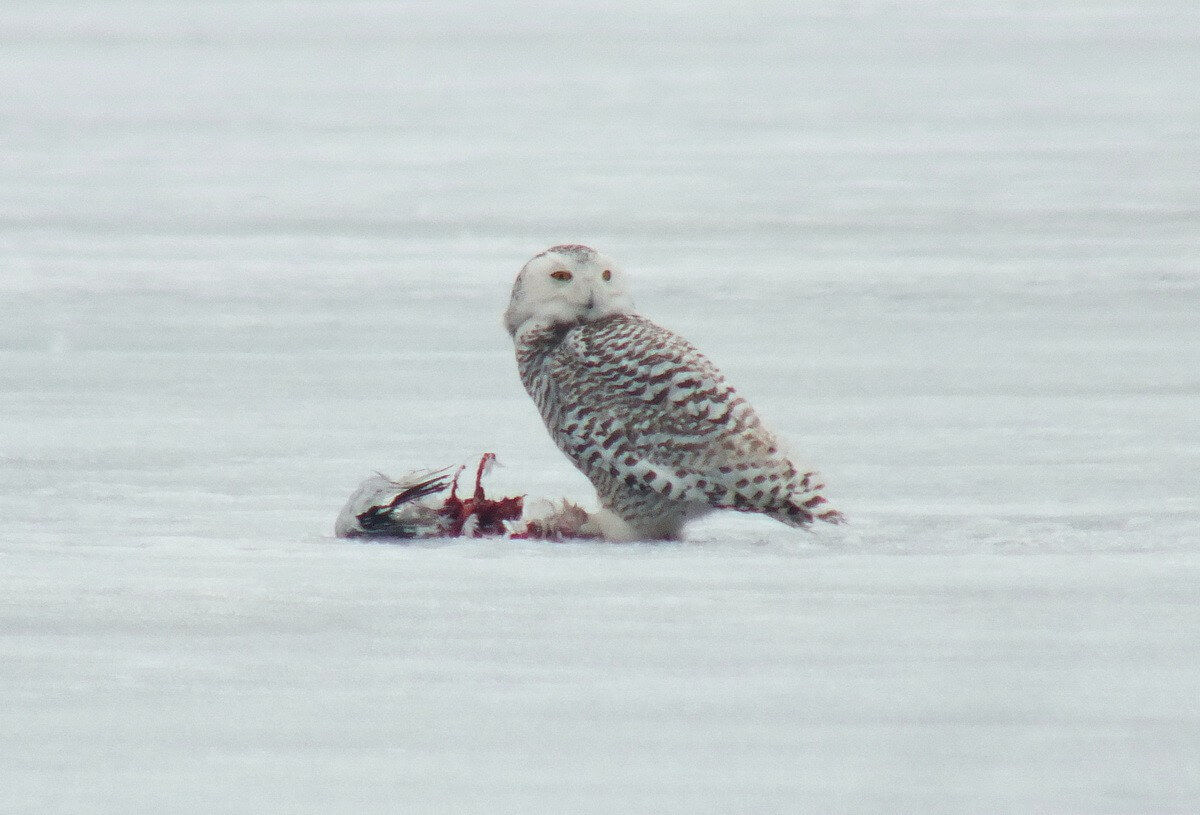
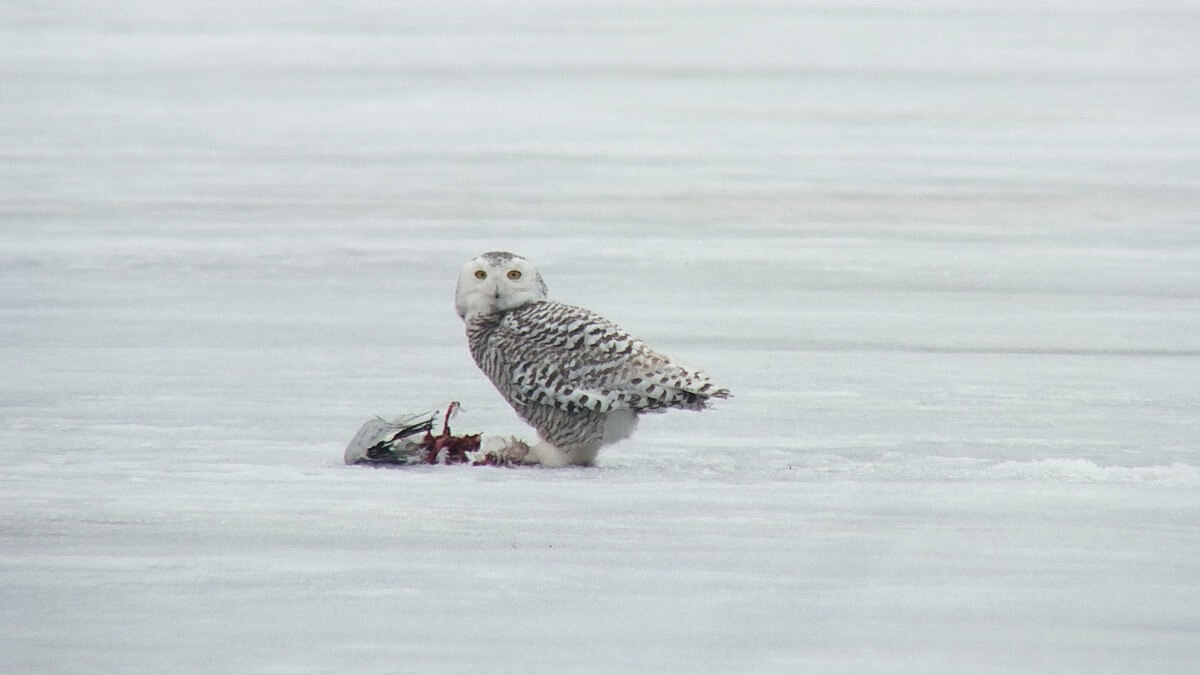
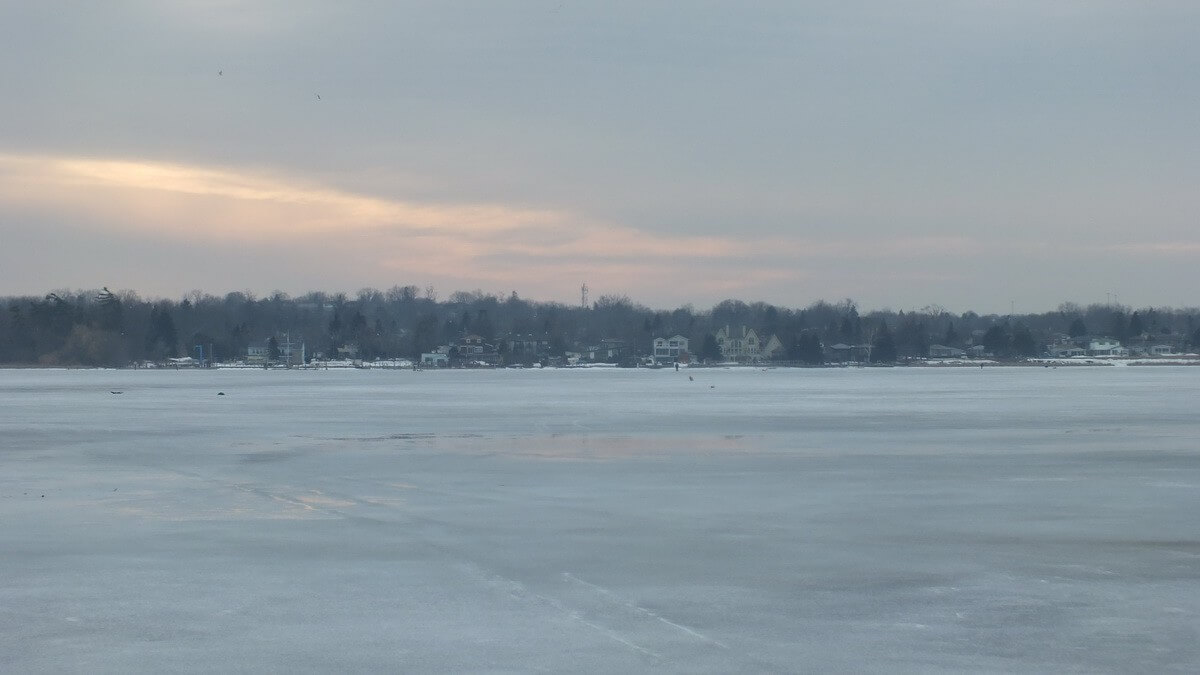
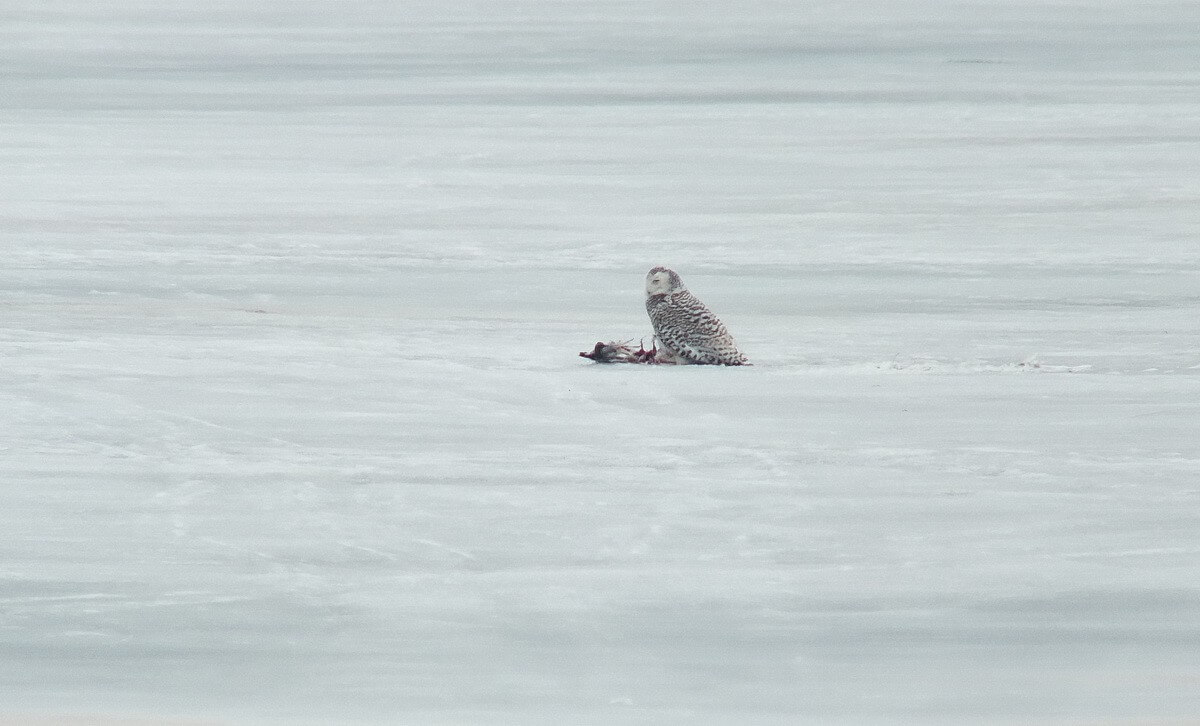
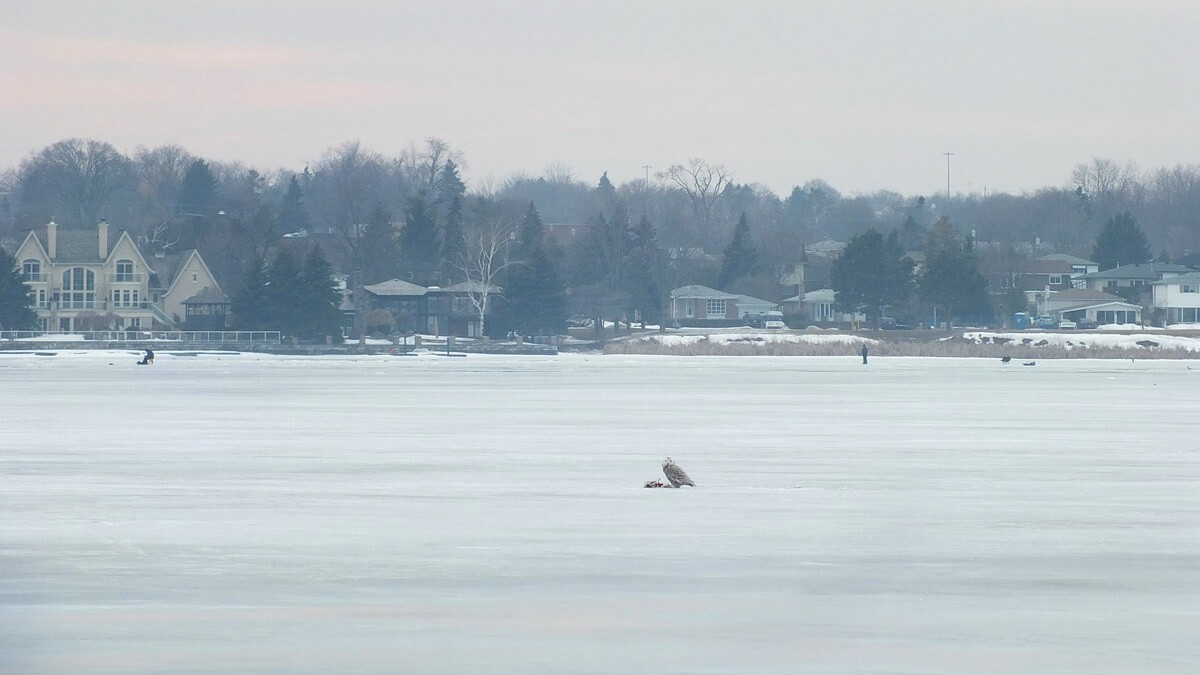
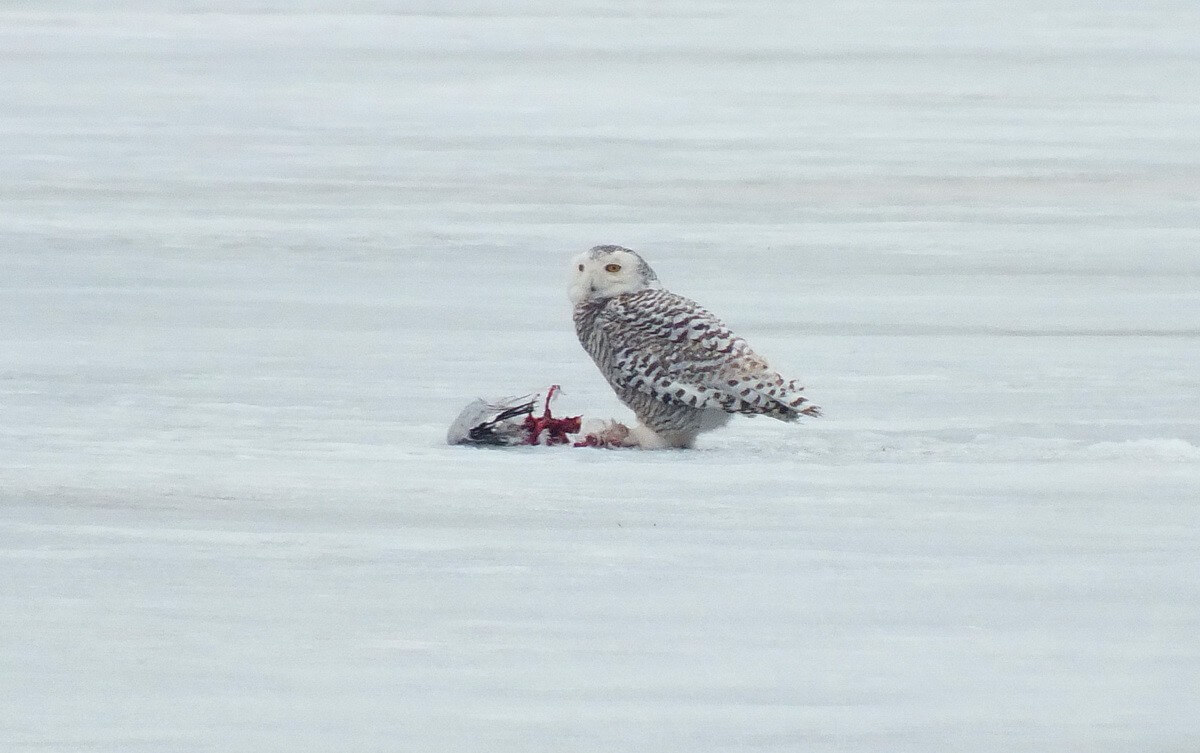
Nice shots and story of the Snowy Owl. The irruption this year has been amazing. We have had as many as 20 spotted just south of London, Ontario.
That’s awesome! What a great opportunity you must have had to photograph the owls. They are so beautiful.
We managed to see the Snowy at Col. Sam last Tues. will head to Frenchman’s Bay this week.
We really enjoy the posts of your adventures
thanks, Marilyn. Bob and I are determined people and headed back to Colonel Samuel Smith Park once again. Based on very recent sightings, as recent as 7:40 a.m. Sunday morning, we got ourselves organized and made a beeline for the reported location. We had excellent luck and will followup with an up-to-date summary of our outing.